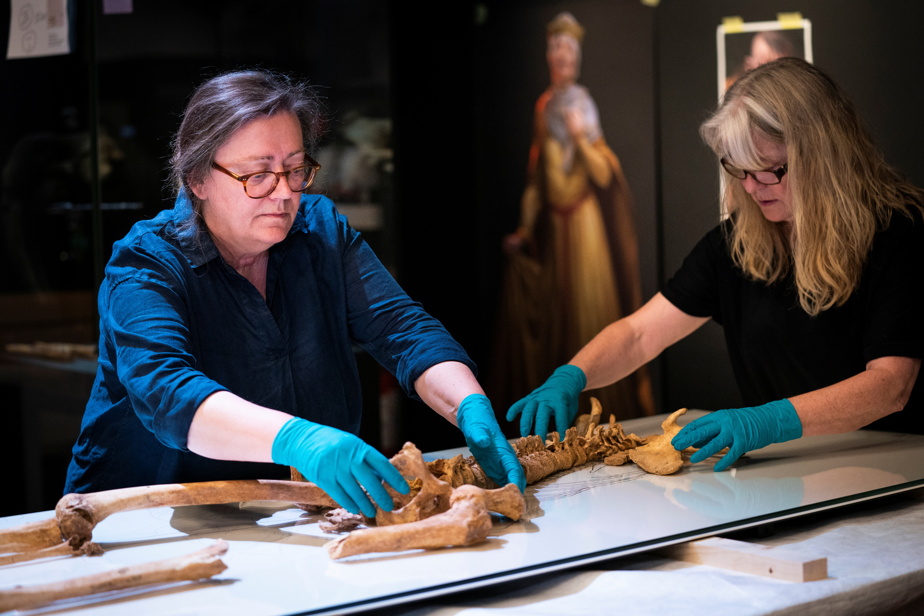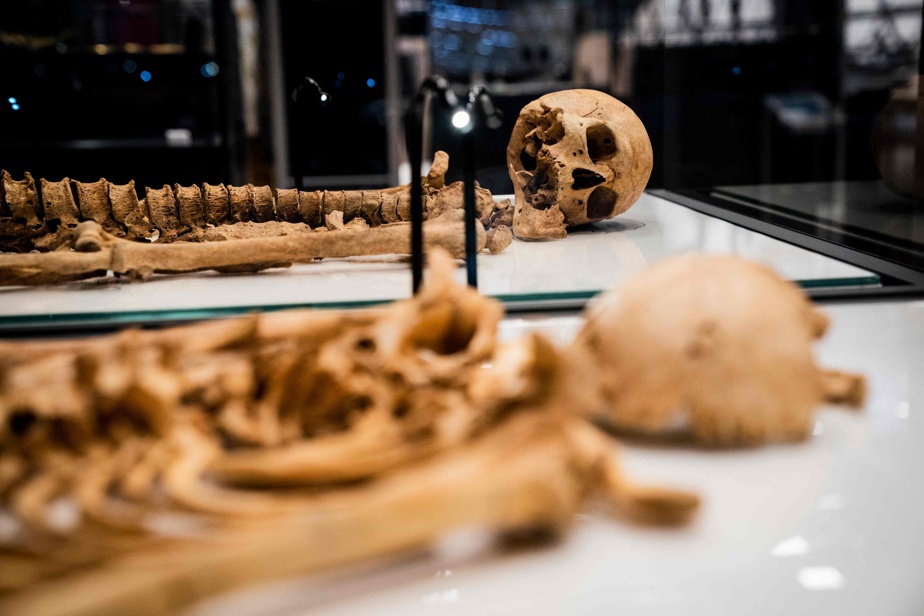(Copenhagen) After being separated for 1,000 years, two Vikings warriors from the same family were reunited Wednesday at the Danish National Museum in Copenhagen, an event that sheds new light on travel across Europe.
At the beginning of the eleventhe A century ago, someone died in England as a result of head injuries and was buried in a mass grave in Oxford. The other died in Denmark, and his skeleton showed signs of beatings indicating that he was going to take part in battles.
DNA Mapping of Skeletons from the Viking Age (Between VIIIe and twelfthe century) coincidentally discover that they are related in the second degree.
“It’s a fascinating find because you can now trace movements through space and time through a family,” explained archaeologist Janet Varberg of the National Museum.
For more than two hours, two colleagues reconstructed the skeleton of a man in his twenties, from about 150 bones loaned from the Oxfordshire Museum for three years.

Photo RITZAU SCANPIX, via Reuters
Two archaeologists reconstructed the skeleton of a man in his 20s over a two-hour period, from about 150 bones on loan from the Oxfordshire Museum.
The historical consensus on this issue is that the ancestors of the Danes invested in Scotland and England.
M said. The young man “may have been shot during a Viking raid, but another theory is that he was the victim of a royal decree from England’s King Ethelred II, who in 1002 ordered the killing of all Danes from England.”I Varberg.
According to her, it is very rare to discover kinship ties between different skeletons, especially when it comes not to the question of kings.
If the kinship is indisputable, it is impossible to determine the exact connection between the two men.
“It is very difficult to determine if they lived at the same time or perhaps there was a generation of difference, because there is nothing in the graves that can give an accurate dating, so you have a margin of plus or minus 50 years,” the archaeologist explained.




